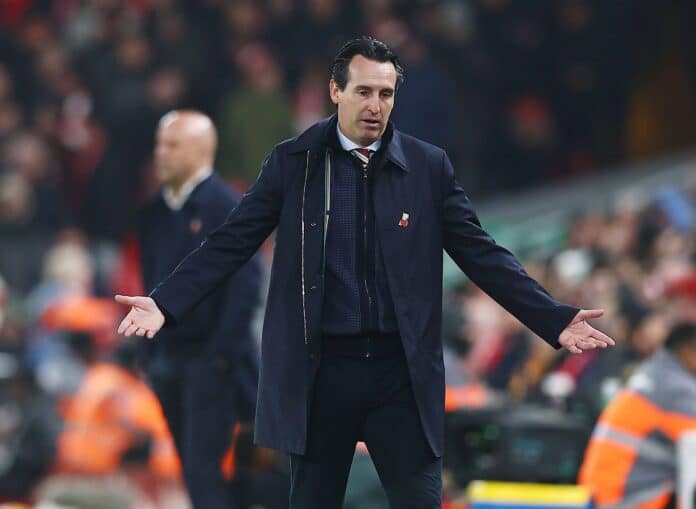Elliott’s Fall From Promise To Periphery
Harvey Elliott’s career once appeared to be moving on a steady upward curve. From being Jurgen Klopp’s trusted young spark to England Under-21 player of the tournament, he seemed destined for a central role in Liverpool’s future. Yet, as Arne Slot reshaped the side in his image, the 22-year-old found himself drifting out of favour. Now at Aston Villa on loan, Elliott finds himself in football’s grey area, a talented player unsure of his place or his manager’s belief.
Saturday’s fixture between Liverpool and Aston Villa carries an odd subtext. Elliott, a boyhood Liverpool fan, “will not play at Anfield on Saturday,” noted The Independent, due to his ineligibility against his parent club. In a sense, that absence may benefit all involved. Liverpool are spared the irony of defeat to one of their own, while Unai Emery avoids questions about his reluctance to play a £35 million loanee.
Elliott’s loan deal becomes permanent only “if certain conditions are met,” reportedly based on appearances. Having made five, with ten required to trigger the obligation, he is now a casualty of financial and tactical caution. Emery left him out of the squad for the 2-1 win over Manchester City, his fourth straight omission.
Slot’s Restructure And Lost Momentum
Under Klopp’s emotional farewell season, Elliott featured 53 times and provided 14 assists. Under Slot, he struggled to adapt to a system that prioritised the 4-2-3-1 shape. “Slot argued it put him in competition with Dominik Szoboszlai and Mohamed Salah for the No 10 and right-wing roles,” wrote The Independent. It was a shift that left little room for his more creative, central instincts.
Slot’s preference for technical fluidity over individual flair meant that Elliott’s impact was often limited to cameos. His winner against Paris Saint-Germain in the Champions League was one of few reminders of his quality. However, that highlight now feels distant as he watches from the sidelines in Birmingham, his momentum lost in the churn of managerial preferences and tactical rigidity.

Emery’s Uncertain Faith
Unai Emery’s comments only deepen the sense of ambiguity around Elliott’s role. “Harvey is a No 10 in our structure, in our shape,” said the Villa boss. “We have other players who can play as a 10. He can maybe play wide right, like John McGinn, but he will need more time.” It is a statement that reveals both acknowledgment of talent and a lack of immediate trust.
Villa’s creative depth, featuring McGinn, Morgan Rogers and Emiliano Buendia, has left Elliott as a luxury rather than a necessity. The Spaniard’s previous flirtations with short-lived signings such as Jaden Philogene and Moussa Diaby show a pattern of inconsistency. As a result, Elliott’s hopes for regular football have faded quickly.
No Winners In Elliott’s Predicament
For Liverpool, the situation carries frustration. They may have anticipated a straightforward £35 million sale, easing financial pressures after their summer investment. For Villa, doubts grow over whether the deal represents value. And for Elliott himself, a move meant to offer opportunity has become another test of resilience.
“Last month, fresh from his debut, imbued with optimism, Elliott had pronounced himself ‘blown away’ by Emery,” the report added. “I think working under him is going to be the best thing for me, as long as he trusts me.” Those words now feel painfully poignant.
At just 22, Elliott remains a player of clear ability, but unless trust and opportunity align, he risks becoming a cautionary tale of modern football’s unforgiving machinery.
Our View – Anfield Index Analysis
From a Liverpool supporter’s perspective, Harvey Elliott’s situation feels bittersweet. Many fans remember his burst into the first team under Klopp, his energy, and his knack for creating something out of nothing. To see him languishing on Aston Villa’s bench feels unjust for a player who always gave his all for the badge.
Arne Slot’s arrival inevitably changed the landscape, but few expected Elliott to be moved on so soon. His technical ability and understanding of the game made him a fan favourite, even when he was not always first choice. Some fans would argue that patience was needed, especially during the transition after Klopp’s departure and the tragic loss of Diogo Jota, which shook the club deeply.
At Villa, his struggles seem more about circumstance than talent. Emery’s system demands specific roles and tactical obedience, but Elliott thrives when given freedom to create. If Villa do not take up the permanent option, Liverpool might quietly welcome him back. In truth, there are no winners in this move, only questions about what might have been.




